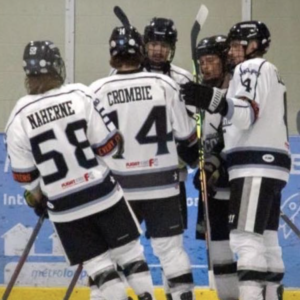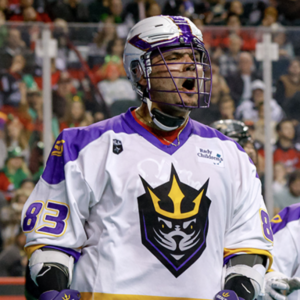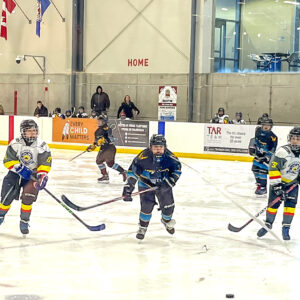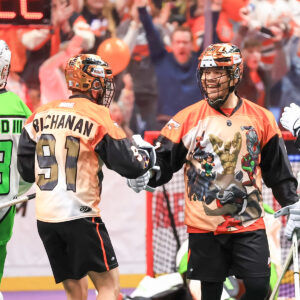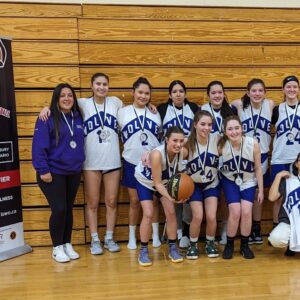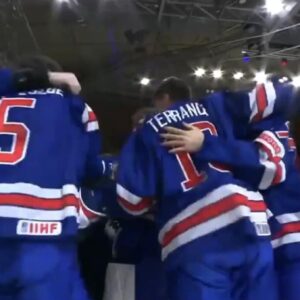
OHSWEKEN – Not everyone who puts on a pair of skates is going to be a premier player in the NHL.
Although it’s sometimes hard to convince parents that their little prodigy is not the next Sidney Crosby, their dream of the NHL doesn’t have to end there. Without rules and a referee, umpire or officials to enforce them, professional sports don’t exist.
So how do you know if you have what it takes to be a referee? Love and knowledge of the game are good first signs, but with refereeing patience is not only a virtue–it’s a necessity.
Most referees aren’t in the business for the money. Refereeing pays roughly $17 per game. But that is not why most minor league refs and baseball umps do what they do almost every weekend in almost every arena and ballpark across Canada.
“It’s about giving something to the kids,” says veteran minor referee Dan McDougall of Brantford. “When I was done playing I wasn’t done with the game so I decided to start refereeing hockey instead.”
More and more young people are discovering their niche as a referee at a young age, but there still needs to be more.
Gabrielle Gracey played minor hockey in Brantford, but at one point she started looking into wearing the stripes and started at the age of 14. That was four years ago.
“It’s really a great part-time job,” she says. “You’re not going to make a living, but if you do three to four games a weekend, it’s a pretty good supplementary income. But you get so much free ice-time too.”
Gracey went through the same channels every referee, in every rink from paperweight to pro, has to go through to move up the ranks where there is more per-game money to be made with each level certificate achieved.
“Step one is to contact the referees association in your region and ask them how to get started,” says Gracey. In the Brantford area it’s the Grand River Referee’s Association.


Certification at all levels, except Level I, is a two-part process involving clinical and practical assessment. From the point of view of the clinic the official must attend all sessions and must obtain the minimum mark on the examination.
Once certified it is essential that an official continue to update and be completely familiar with new rule interpretations and officiating techniques. To maintain one’s present level of certification an individual must attend a full Hockey Canada officiating program clinic and write a national examination every year with appropriate passing mark.
An individual must be at least 16 years old to be certified at Level II or higher.
The level system, Level I through Level VI, is the foundation for the training and development of amateur hockey officials across Canada. The Hockey Canada officiating program has opportunities for everyone from the Initiation at Level I, through to the Program of Excellence Levels V and VI, according to their website.
Much of the initial learning program is academic and done on-line where rules and basic information is taught the applicant. After a one-hour on-ice session where they are tested, the Level I certificate is awarded.
“You start at tyke, and work through the young minor levels,” says Gracey. “Then there is Level II, after you turn 16, which is also available online.”
There is no rep hockey for referees with levels I and II. Referees are watched by supervisors to ensure they are ready to move up the ladder and need to be re-certified again at each rung.
As with Gracey, a lot of referees have played the game before and have enjoyed the game, and want to stay in the game to give back a little.
“That’s pretty common among my peers,” she says.
For McDougall, it’s talking to the kids about what an off-side is, or how to line-up properly, or encouraging goalies who are having a hard game, or congratulating a kid on a good play. That’s the part of the job many minor referees love most.
But what about overzealous parents who don’t understand that the referees at the minor levels are learning the referee game themselves and need to be able to make a few mistakes along the way?
As if on cue, McDougall and Gracey had to deal with an irate hockey dad and expel him from the Gaylord Powless Arena.
“Sometimes that’s the hardest part of doing this job is dealing with some parents,” says McDougall.
On the other end of the spectrum from young Gracey’s youth, is Steve Ryan and Richard Striukas. Ryan started 25 years ago, and Striukas 27 seasons ago. They both still wear a half-screen wire eye shield on their helmets and skating on Tuuk blades, and they still love it.
“I still wanted to be in the game,” says Ryan. “By brother was a referee, but I didn’t start until I was 28.”
For him, it’s his love of the game and love of kids that keeps him going.
“It’s fun to mentor and help the kids,” he says. “And the coaches appreciate that too.”
For Striukas, it came about another way.
“When I was a hockey player I thought I’d be playing ‘till I was 65,” he reflects. “But a broken leg in three places does something to change your mind about that.”
After a brief try at curling, someone suggested the obvious and that is what led Striukas to the fraternity.
“Why didn’t I do this when I was in my 20s,” he recalls asking himself, recently. “I still love this game too much.”



